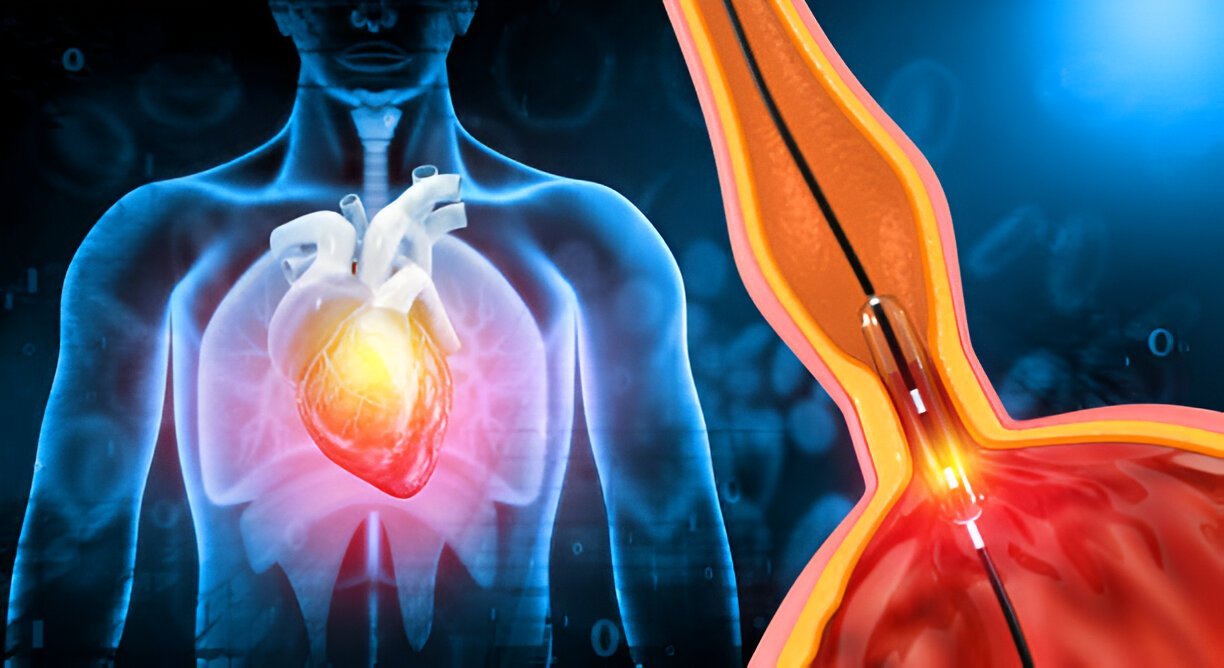Heart diseases stand as one of the primary reasons for global mortality since they annually affect millions of people worldwide. The global healthcare community prioritizes heart health management because it includes both coronary artery disease (CAD) and heart attacks and strokes. Interventional cardiology represents a groundbreaking treatment approach which utilizes minimally invasive procedures to help treat different cardiovascular diseases.
What is Interventional Cardiology?
The field of interventional cardiology enables heart condition diagnosis and treatment through catheter-based procedures which eliminate the necessity of standard open-heart surgery. The medical procedures of angioplasty along with stent placement and catheter-based interventions serve to treat heart defects and unblock blood vessels and manage arrhythmic conditions. The procedures enter the body through tiny incisions located at the groin or wrist area to minimize recovery periods and decrease potential complications compared to surgical interventions.
Minimally Invasive Procedures with Big Impact
Interventional cardiology provides patients with essential treatment options that eliminate the requirement of major surgical intervention. Common procedures include:
- Angioplasty combined with stent placement provides a treatment method for patients who have coronary artery disease because it opens blocked arteries when plaque buildup restricts blood flow to the heart. The physician utilizes an inflated balloon to expand the artery before placing a stent (mesh tube) for continued artery support. The procedure decreases both angina pain and lowers the chance of experiencing heart attacks.
- Through catheter-based ablation procedures interventional cardiologists perform treatments for patients with abnormal heart rhythms known as arrhythmias. A catheter accesses blood vessels to reach the heart so doctors can apply energy (radiofrequency or cryo-ablation) through the catheter to destroy the heart tissue that triggers irregular heartbeats and thus normalize the heartbeat.
- Percutaneous Valve Repair/Replacement enables doctors to fix or exchange heart valves through catheters to treat patients with valve conditions like aortic stenosis. The minimally invasive approach presents reduced danger compared to open surgery specifically for elderly or physically weak patients.
- Medical staff use thrombectomy to extract blood clots from arteries during heart attacks and strokes which restores heart or brain blood flow to prevent permanent tissue damage.
Improved Outcomes with Faster Recovery
Interventional cardiology remains crucial in medical practice because it enables physicians to deliver safer treatment methods that require minimal invasive procedures. The recovery period for patients who receive angioplasty or stent placement treatment lasts shorter durations than patients who need traditional bypass surgery. Patients experience faster recovery after treatment because the procedures shorten their recovery time and reduce their risk of hospital-acquired infections and extended hospitalization periods.
The combination of fluoroscopy and intravascular ultrasound (IVUS) and optical coherence tomography (OCT) imaging technology allows cardiologists to perform procedures with high precision thus improving both outcomes and safety.
A Growing Field with Expanding Potential
The rising numbers of cardiovascular diseases drive an expanding need for interventional cardiology medical services. Today numerous patients with challenging cardiovascular problems have access to lifesaving medical procedures which were previously available only through surgery. Interventional cardiologists now actively participate in preventive medicine by detecting and treating vascular blockages to avoid heart attacks and strokes.
Future medical advances involving robotic surgery together with biodegradable stents will improve interventional cardiology by enhancing precision and reducing invasive procedures while enabling treatment accessibility to more patients.
Suggested Read: thoracic surgery
Conclusion
Through interventional cardiology patients receive life-saving treatments which provide faster recovery times and lower risks compared to the risks associated with traditional surgical methods. Through their work interventional cardiologists lead the way to enhance heart health by unblocking arteries and treating arrhythmias and replacing faulty heart valves thus preventing major cardiovascular complications. The expansion of this field will deliver improved health outcomes for patients together with enhanced global cardiovascular health. Read more articles…



